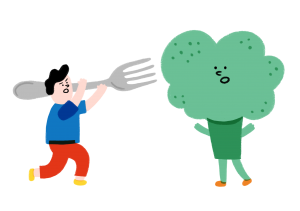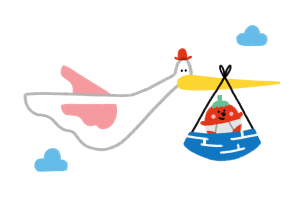Our Mission
How to battle picky-eating warriors?

Young children (and adults!) today face the challenge of food neophobia, or the fear of trying new and unknown foods. This puts children at risk for imbalanced diet lacking in nutrition and variety, which can impact their physical and cognitive development. To address this, it is important for children to create a positive and natural relationship around food and eating.
How to go beyond “yummy!” or “gross!”?

Young children often struggle to put into words their taste experiences. By categorizing foods into just “yummy” or “gross,” children oversimplify foods into groups of those to avoid and those to overconsume. Ultimately, this limits the range of foods that children can explore and enjoy. It is important for children to discover a whole world of food beyond just delicious and disgusting because when children build the necessary vocabulary to describe one’s sensory impressions, this can also allow for the natural development of self-expression and learning to respect others’ opinions and experiences – all of which are fundamental life-long skills.
How to deal with the dreaded question…“Where are foods born from?”

In our fast-paced and urban lifestyle that is descriptive of Singapore and other cities in the region, children are often closed to the conversation of where our food comes from, how it is processed, and why it is good for them. To better help children appreciate food and health, it is important to guide them through the connection of meals on their plate to the origins of food (nature, the environment, processing, and culture).
My First Bite strives to help and support parents in facing the above challenges, by providing classes and resources to help their children build the foundations to healthy attitudes towards eating. In line with the Sapere method goals, we aim to empower children to:
- Learn about their senses and how they can be used as tools for exploration
- Develop the skills to express their preferences and opinions on foods
- Foster a willingness to try new ingredients and dishes
- Experience food and mealtime as a fun and pleasurable part of the day
- Link food and meals to culture, environment, nature, and well-being
- Develop empathy and respect for others’ opinions